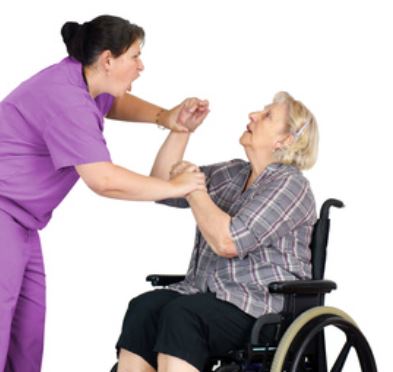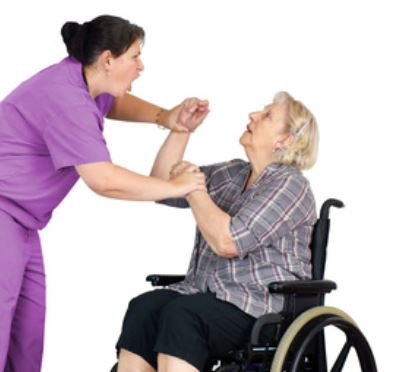
The government refused to widen the law. But because the move had a lot of support, the Home Office and Department of Health and Social Care set up a review: Safe care at home review: terms of reference – GOV.UK (www.gov.uk)
From WinVisible’s discussion, we sent in a statement which is being looked at by the Review. Here it is.
————————————————————————————————————–
Statement to the Safe Care at Home Review
By WinVisible (women with visible and invisible disabilities)
We are a grassroots multi-racial disabled women’s organisation with a UK-wide network, providing self-help information, support, casework and campaigning. Since we began in 1984, financial independence, benefit and social care rights, tackling multiple discrimination and vulnerability to rape and domestic abuse are our priorities, and we work closely with Women Against Rape on issues affecting disabled women. We are part of Support Not Separation, a coalition to end the unwarranted and damaging separation of children from their mother or other primary carer, and we co-ordinate the Disabled Mothers’ Rights Campaign.
Most of our group, network and the women from the public contacting WinVisible have personal experience of violence: of abuse as children or adults, rape and other sexual violence, domestic abuse, and street abuse and assault (including homophobic attack). Around half of the disabled women coming to us for support in dealing with the brutal benefits system, need disability benefits due to trauma and mental distress resulting from violence. Women are also permanently physically injured by violent partners.
Extract from UK government Review of rape 2021 – equalities statement:
“Victims
We know that victims of rape or assault by penetration (including attempts) aged 16 to 74 were more likely to:
• be a woman (in the year to March 2020, 0.8% of women reported being a victim or rape or assault by penetration, compared with 0.1% of men);
• if they were a woman, to have a disability (1.9 % of women with a disability reported being a victim, compared to 0.6% of women without based on combined data from the year ending March 2018 and March 2020 [there is no notable difference for male victims]);
• identify their sexual orientation as gay or lesbian (1.2%), other (2.5%) or bisexual (3%), compared to 0.4% of those who identified as heterosexual or straight reported being a victim (based on combined figures from the year ending March 2018 to March 2020);”
There have been several undercover documentaries which have exposed how older women, especially with dementia, have been assaulted by care staff in residential homes, or have suffered abuse at home by homecare staff, and are unable to report.
Safe Care at Home Review
A number of us contributed to the consultation meeting held by Stay Safe East and Inclusion London in July 2022 and spoke about policies and personal experiences.
Review questions:
Are people providing care given enough support? What does good support for the person who is cared for, and the person caring look like?
Are there adequate protections in place to make sure that people are not harmed in their own home by someone providing care? What if anything could be improved?
We say:
The underlying reason why abuse happens at home is the lack of proper financial recognition of caring work for both unwaged carers, family and friends, and low-paid carers who are themselves exploited; and because those of us who need care, disabled women especially, are deprived of income and resources and so have lower status.
Disabled people being the employer under the Direct Payments scheme has largely not changed this status, including because the personal budgets allocated by councils, and central government grants for social care, are low and don’t pay a living wage. In any case, we want a mutually respectful relationship as part of high-quality support of our choice, not an employer/employee hierarchy in our home. Many disabled people don’t want to be an employer nor to have to personally organise all aspects of their support – it takes much energy to deal with all the responsibilities, training and paperwork, and when things go wrong we usually have no one to call on for help.
All carers deserve a Care Income which should be no less than the living wage. Care workers are no less important than NHS, rail or postal staff.
Cuts, privatisation and zero-hour contracts have worsened the conditions which give rise to abuse. Care staff doing home visits, who are overwhelmingly women, often immigrant women, especially in urban areas, are exploited by the profiteer companies who treat people reliant on care as commodities for profit, pay dividends to their shareholders but deny the minimum wage to their workers by only paying visit time, and expect carers to pay their own petrol or travel costs. This also leads to carers leaving their jobs and a lack of care staff, which makes us more reliant on family and friends or reluctant to call out abuse as there is no one to replace the abuser.
Very often, disabled women have to deal with incidents of abuse by paid carers by ourselves, with little or no back-up or oversight by the council which has overall responsibility. Women in our network have said that this is a price they are forced to pay for living in our own home, not an institution. But we should not have to suffer abuse or be afraid of it happening in order to keep some independence.
Care charges taken from our disability benefits, such as £116 or £79 a week, force women to drop out of council services. Many of us are then forced to rely for daily living help on acquaintances, including men who turn abusive and even rapist. Some already expect something in return for doing us a “favour”, others see an opportunity. The cost of living crisis is heightening this.
Women Against Rape and others are campaigning to end the destitution which forces asylum-seeking and immigrant women into all kinds of exploitative and dangerous situations. See their evidence to the Home Affairs Select Committee.
The government’s hostile environment, including the immigration system, No Recourse to Public Funds and the Immigration Act 2014 denying homelessness assistance to some immigrant people, is abusive and creates vulnerability to abuse by others. Another aspect is that many asylum-seeking and immigrant disabled women are wrongly turned away by councils as not entitled to Care Act support, so are forced to live hand-to-mouth and rely on acquaintances.
Disabled women are dismissed by police who claim it’s incredible that someone would want to rape us, and judges who accuse us of reporting rape and other abuse to bolster our asylum claim. A legal precedent case (GS v LB Camden 2016), where we supported a homeless Afghan woman refugee wheelchair user, and found a legal team which secured the housing which she was denied on the basis of her immigration status, was overturned by a higher court. This later ruling shamefully upheld laws which deny the responsibility of state agencies for people’s welfare.
Wider criminal charges won’t put an end to abuse unless the conditions that encourage abuse are ended. The authorities are likely to pursue the most lowly accused and not more senior staff and homecare companies. We note that care staff at Winterbourne View were jailed for abuse but the company directors at Castlebeck whose company ignored the abuse were not. Castlebeck went into liquidation and it was the NHS that compensated the victims, while Castlebeck had charged the NHS £3,500 per week for one placement.
Compassion in Care is campaigning for legal protection for whistleblowers who report abuse and are targeted. This protection must be a priority.
The police and CPS track record on investigating and prosecuting violence against women and disability hate crime is appalling. The police are discredited for their proven bias on rape, racism, disability and homophobia. How will they take action to investigate abuse and protect disabled women, whom they already enjoy ridiculing or target for sex as victims of crime? The prosecution rates for rape and disability hate crime are both extremely low, despite CPS guidance which is supposed to counter the stereotype that disabled women are unreliable witnesses. See also: https://womenagainstrape.net/how-police-are-failing-to-protect-women/#more-7276
Social care. The issues which we set out in our written evidence to the Health and Social Care Select Committee in 2020 are still valid today. Social care was deprioritised by the Coronavirus Act and the social care crisis continues, along with the current benefit regime where our lives don’t matter and our survival is not a priority. Cathy Gardner and Fay Harris successfully brought a case which proved that the Secretary of State for Health and Social Care, Matt Hancock, acted unlawfully in “seeding” COVID into care homes, causing the deaths of tens of thousands of people. And Rights for Residents quote a study that almost 40% of “excess” care home deaths during the first year of the pandemic were from thirst, hunger and neglect — not COVID.
Housing and transport. Inaccessible and unaffordable housing adds to our isolation and care needs. Cuts to train staff and ticket office closures ignore our right to travel and safety.
All the elements of independent living which work against abuse are disregarded.
How can we expect individual carers who are devalued and exploited to always respect the disabled people who depend on their hard work, when the authorities themselves defund and deprioritise the services and resources we need, pass legislation which enables them to kill us without comeback, as happened with the Coronavirus Act and allied “emergency” policies, and refuse to pay carers a living wage?
16 September 2022
_______________________________________________________________

